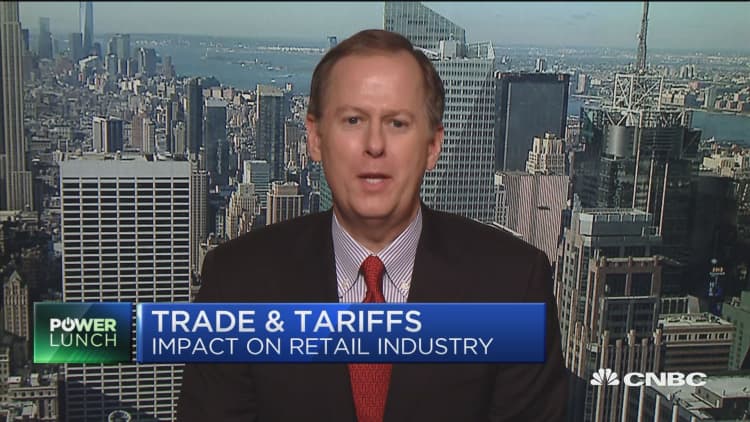
The United States is taking the blame for trade tensions that were started by other countries, said Steve Odland, president and CEO of Committee for Economic Development, a Washington think tank.
"It's China that has been doing the bad behavior for a number of years," Odland told CNBC, referring to the Asian nation's history of alleged unfair trading practices.
Odland, who was chief executive officer of Office Depot from 2005 to 2010 and AutoZone from 2001 to 2005, pointed out that the European Union has imposed tariffs on the U.S. in the past.
"We're essentially following the Europeans," said Odland, who is also a CNBC contributor.
But Odland said he's spoken with a number of business leaders in Europe, Latin America and Asia, who have told him that the U.S. is instigating trade wars.
"That is totally unfair," he said Friday on "Power Lunch."
"I think [other countries are] not accustomed to this style of negotiation and diplomacy," he said. "It's not a typical way for the U.S. or other countries to carry out diplomacy. So they're reading it not as a negotiation, but as a trade war."
"That's what's spooking them," he said. "Their interpretation is that this is the new-brand America and they don't like it. It's been confusing for people, obviously nations."
President Donald Trump on Tuesday unveiled a list of Chinese imports he plans to target with his tariffs, in what he has said is an attempt to correct unfair trading practices. The list includes products from sectors such as robotics, information technology, communication technology and aerospace.
On Wednesday, China responded with plans to impose tariffs of its own on 106 U.S. products. The Chinese levies would hit soybeans, cars, aerospace and defense products.
Treasury Secretary Steven Mnuchin told CNBC's Steve Liesman on Friday that the administration's "objective is still not to be in a trade war" with China, but acknowledged that "there is a potential of a trade war."
While Odland said he thinks the U.S. is getting a bum rap for other countries' deeds, he acknowledges that public perceptions do matter.
"This is hurting America," he said. "People are misunderstanding what the administration is trying to do. They're trying to get China to follow WTO rules, stop dumping and stop stealing IP."
"The way the administration has been conducting negotiations is not working, so they're trying something new," he said.


